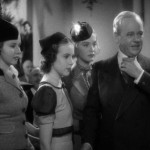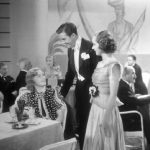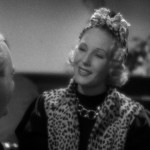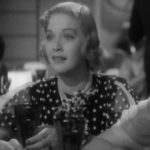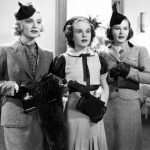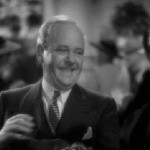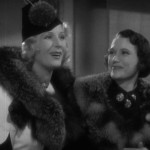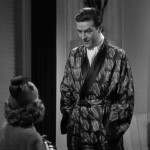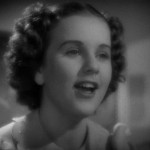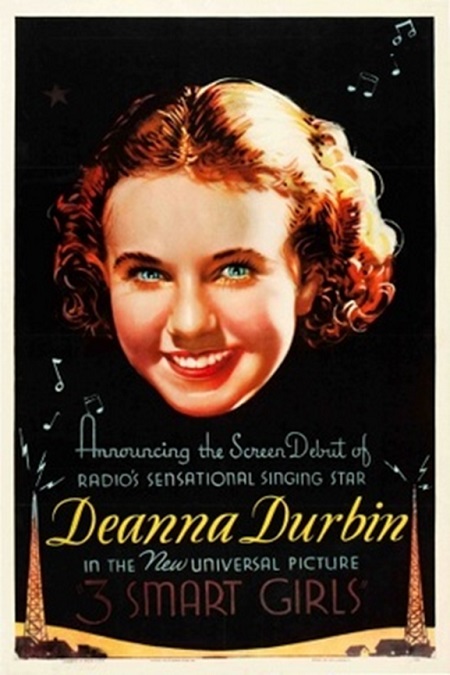
Three Smart Girls – 1936
Here we have another screwball comedy. It is becoming apparent to me that the genre was a popular one in the 1930s and it is easy to see why. The screwball comedy is fluff. It has a happy ending and a light-hearted air about it. It doesn’t require you to feel too much or think too hard. The plot is clever but not complicated. The dialogue is witty and humorous. There is always at least one couple that you cheer for that will end up with each other.
But it also has another quality that is unique to the category. There is an element of zaniness and wackiness to it. The situations are farcical and over the top. The characters are ones that rarely exist in the real world.
Three Smart Girls is a perfect example. The film stars three young women as sisters in the Craig family. Barbara Reed plays Kay, the oldest of the siblings. The middle daughter, Joan, is played by Nan Grey. Deanna Durbin plays the youngest sister, Penny, though despite what the poster says, not in her film debut.
The three young women live with their mother, Dorothy Craig, played by Nella Walker. Their incredibly rich father is out of the picture. He lives in New York after having divorced the mother ten years prior to the story taking place. The three girls and their mother read a news article which tells of the father, Judson Craig, played by Charles Winninger, getting engaged to a beautiful woman of the New York upper-crust.
Here is where the zany element comes in. The mother begins crying when she reads the news. The saddened girls concoct a scheme in which they will fly to New York and break up their father’s engagement in order to get their parents back together. But really, think about it. Who in their right mind would actually do such a thing? A child might fantasize about doing something like that, but to actually put it into action? That can only happen in the movies.
I mean, the premise is cute enough for a lark, but realistically, it would never happen. For example, the kids have no idea why their parents split up in the first place, nor did the movie provide that information. What if the divorce had taken place because the father had caught the mother cheating? What if she had a ken placehe split up had been because the father had caught the mother cheating? What if she had st place, nor did the movie problem with spending too much of her husband’s money? What if the father was an alcoholic? What if he had been an abusive husband? Or what if the answer was even simpler than that? What if the parents were just fine as friends, but had irreconcilable differences in a marriage relationship.
In embarking on their childish plan, the three girls were actually being incredibly naive and inconsiderate to both their parents. But then we wouldn’t have much of a movie. So they whisk themselves away to New York and descend upon their unsuspecting father, who hasn’t seen any of them in 10 years. His beautiful fiancée, Donna Lyons, played by Binnie Barnes is at first annoyed, and then angered by the three sisters’ shenanigans. And why wouldn’t she be angry. In the real world, she would have every right to be furious.
Fortunately, she is nothing but a common gold-digger. She is always ready to pounce on the richest man in her immediate vicinity. She is obviously the wrong woman for Judson to marry. But what if she had been a good woman who truly loved him? How would the sisters have known? The three “smart” girls would have destroyed their father’s happiness.
But fortunately, the plan was a success. Donna goes away and Dorothy comes to New York, though I found it interesting that upon seeing his ex-wife, Judson does not look terribly enthusiastic about the reunion.
However, along the way, two of the sisters find their own true loves, one of whom was played by the handsome Ray Milland. And the third sister (you guessed it), Penny, uses her exquisite voice to charm everyone, including Judson. She really did have a set of pipes! She sang beautifully and with a smile that wouldn’t quit, which was actually a bit surprising, since she was only 15 years old when the movie was filmed. Well done, Durbin!
The movie was ultimately cute and harmless, but it was also formulaic and predictable. A better screwball comedy would have had some kind of clever twist that would have caught the audience by surprise. The acting was good enough and didn’t raise any red flags. In fact, I particularly liked Charles Winninger. He was not the lead, but I felt his skills as an actor were far above those of his co-stars.
